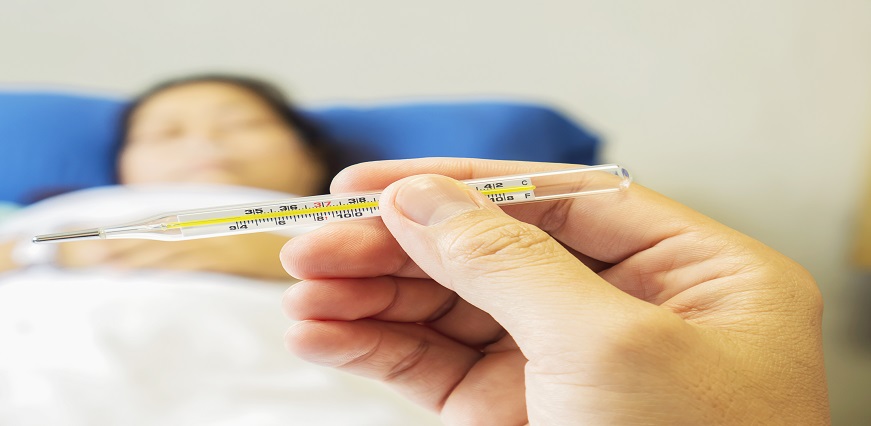





No lab centers are available in this city

Max Lab
Jun 27, 2024
The Nipah Virus, or NIV, is a zoonotic disease that primarily spreads from fruit bats and can initially spread between animals and humans. First identified in 1998 in Malaysia during an outbreak, the Nipah virus predominantly affected pig farmers and humans in close proximity to the infected pigs. The natural reservoir of the virus is fruit bats of the Pteropus genus, a group of large bats commonly known as flying foxes. These fruit bats can transmit the virus to humans directly or through other intermediate hosts such as pigs. Additionally, humans can contact Nipah virus through the consumption of food contaminated with bat urine or saliva or through direct person-to-person contact, which includes bodily fluids or respiratory secretions.
The effects of the Nipah virus can lead to a range of clinical symptoms, from mild respiratory issues to severe encephalitis (swelling of the brain), making early diagnosis and timely treatment complex and challenging. However, understanding the symptoms and being aware of the potential risks and mortality rates of the Nipah virus can empower individuals to take proactive steps. The virus's incubation period is said to range between four and fourteen days. Hence, the severity of the virus underscores the importance of understanding its symptoms, diagnosis, and treatment. Read along to learn more.
The Nipah virus causes human infections ranging from asymptomatic to fatal respiratory infections, seizures, and even encephalitis. Those infected by the Nipah virus initially develop symptoms such as fever, headaches, vomiting, sore throat, and myalgia (muscle pain). Although the incubation period typically lasts from four to fourteen days, cases with incubation periods as long as 45 days have also been reported. The symptoms of the Nipah virus can be categorised into two phases: the early phase and the advanced phase. The most common signs and symptoms of Nipah virus include:
Early Phase
Advanced Phase
Because the early phase of the Nipah virus infection shows symptoms similar to the common cold and other respiratory issues, healthcare providers, with their expertise and experience, rarely diagnose the Nipah virus at first. However, if the patient has travelled to a Nipah-infected region, the doctor, with their thorough understanding of the disease, may order a series of tests to diagnose the infection and suggest the next steps. Some of the most common diagnosis techniques for the Nipah virus include:
Initial diagnosis includes clinical assessment, such as information about the patient’s recent travel to a Nipah virus outbreak region or contact with infected individuals or animals.
RT-PCR (Reverse Transcription Polymerase Chain Reaction)
Diagnosis of the Nipah virus through RT-PCR is one of the most common ways to detect viral RNA in the throat and nasal secretions.
ELISA (Enzyme-linked Immunosorbent Assay)
The ELISA test can detect IgM and IgG antibodies against the Nipah virus in an individual’s serum, indicating past or current infection.
Imaging
Neuroimaging tests, such as CT scans or MRIs, may show abnormalities consistent with encephalitis in individuals, helping to support the diagnosis of neurological symptoms.
Nipah Virus Treatment
No specific antiviral treatment has been available for the Nipah virus infection in recent times. However, virus management, with its primary focus on supportive care and symptomatic treatment, offers hope for improved patient outcomes and healthier lives. While this approach is not a cure for the Nipah virus, it can significantly contribute to the patient's recovery and well-being.
Intensive Care Unit (ICU) Management
Patients with advanced phases of the Nipah virus infection acing severe respiratory or neurological issues often require admission to the ICU. Here, the patients receive mechanical ventilation for respiratory support and continuous monitoring for life-threatening complications.
Hydration and Nutrition
Maintaining adequate hydration and nutrition is essential for patients diagnosed with the Nipah virus for patient recovery. Intravenous fluid may be necessary for patients who are unable to drink or eat.
Seizure Management
Alternatively, anticonvulsant medications may be prescribed to patients to alleviate symptoms, such as fever, agitation, pain and control seizures, which are common in patients with severe encephalitis.
Ribavirin
In most cases, ribavirin, an antiviral medication that is used to treat several types of viral infections, is suggested to patients to help reduce the severity of symptoms and cure the Nipah virus. Ribavirin works by stopping the virus from multiplying, which can help the body's immune system fight off the infection more effectively.
Post-Exposure Prophylaxis
Doctors often give post-exposure prophylaxis, a preventive treatment for the Nipah virus, to individuals who have been exposed to it to reduce their risk of developing the disease. This may include administering monoclonal antibodies or antiviral drugs, which can help the body fight off the virus before it causes severe symptoms.
Nipah virus infection presents a significant public health challenge due to its high mortality rate, severe symptoms, and potential risk for widespread outbreaks. With no specific antiviral treatment or vaccination against the Nipah virus, managing the disease primarily relies on experimental therapies, which are still being tested and are not yet approved for widespread use, and supportive care. By understanding the Nipah virus symptoms, diagnosis, and treatment options available, individuals can prevent this fatal disease and live a healthy and happy lifestyle.

















Sign up takes less than 60 secs and gives you access to your offers, orders and lab tests.
Looks like you are not registered with us. Please Sign up to proceed
OTP will be sent to this number by SMS
We have successfully received your details. One of the agents will call you back soon.
 To reach our help desk call 9213188888
To reach our help desk call 9213188888
No Lab Centers are available in this city
Looks like you are not registered with us. Please Sign up to proceed
OTP will be sent to this number by SMS
Not Registered Yet? Signup now.Looks like you are not registered with us. Please Sign up to proceed





 7982100200
7982100200.png)
Comments